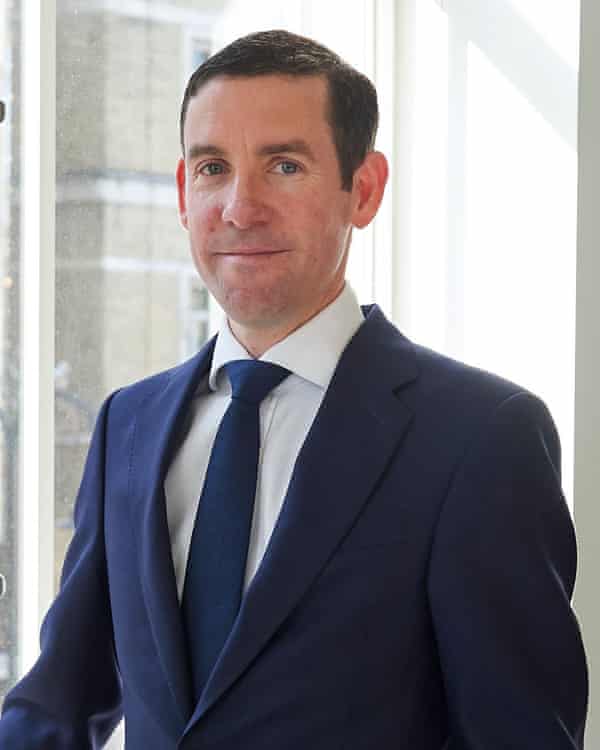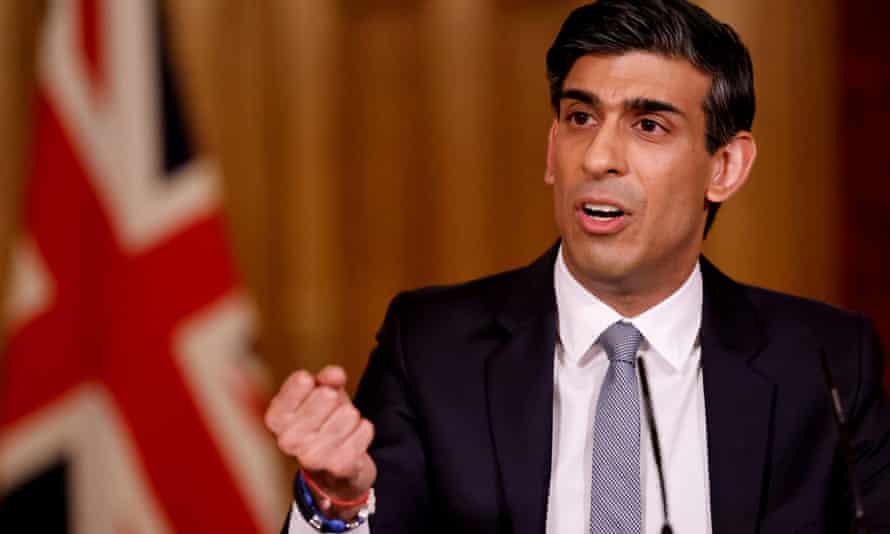David Cameron was in line to profit from a $30m (£21.8m) employee benefit trust registered in Jersey thanks to his role with the now-collapsed Greensill Capital, the Observer can reveal.
The revelation comes amid calls for the former prime minister to disclose just how much he was in line to gain from his role advising the firm, founded by Australian financier Lex Greensill. It follows a week in which further details emerged of Cameron’s lobbying of ministers, as he sought to persuade them to hand Greensill access to government-backed financial aid schemes.
Cameron, a paid adviser to Greensill, repeatedly texted chancellor Rishi Sunak to grant the lender access to the Bank of England’s Covid Corporate Financing Facility (CCFF). Greensill had a series of meetings with senior Treasury officials. Text messages released last week show Sunak telling Cameron he had “pushed the team to explore an alternative with the Bank that might work”. There was also a call between the men, but it is not known if officials listened in on the call or whether notes of the conversation were taken.
While access to the CCFF was ultimately rebuffed, Britain’s public spending watchdog is now considering a request to investigate how Greensill Capital was later accredited to the Coronavirus Large Business Interruption Loan Scheme (CLBILS), handing it the ability to access government-backed loans of up to £50m.

The size of Cameron’s potential shareholding in Greensill remains unclear and the former prime minister has so far refused to disclose the details. Greensill records show 13,931 shares were held in two blocks by an offshore wealth manager, named as Jersey-based Sanne Fiduciary Services. A spokesperson for Sanne confirmed that these shares were held by two employee benefit trusts, reserved for stock options issued to employees. It is understood that none of the shares in these trusts had been distributed to staff by the time Greensill collapsed.
A source close to Cameron offered some of the first comments made on his behalf over the affair. They disputed reports that Cameron told friends he was set for a $60m windfall if Greensill successfully floated on the stock exchange. “The figures being bandied around about his subsequent remuneration from Greensill are becoming increasingly inaccurate,” the source said. “His reported ‘boast’ to friends about his remuneration is fiction, but people keep repeating it.”
Meanwhile, the National Audit Office (NAO) is examining whether to investigate claims that Greensill Capital’s access to the scheme created a risk to public funds. While the NAO cannot look into Greensill’s business, it is able to investigate issues where value for public money is at stake. Anneliese Dodds, the shadow chancellor, has now written to Gareth Davies, head of the NAO, asking for an investigation. “I am aware that you have previously commissioned an investigation into government procurement during the Covid-19 pandemic,” she writes. “It is my view that a similar investigation is urgently needed into the reasons why Greensill Capital was accredited to the CLBILS scheme, who was responsible for that decision and to what degree it put public money at risk.”
Dodds told the Observer that there were “serious questions about the design and application of the chancellor’s Covid loan schemes, why an unregulated lending firm was granted access to them, who made that decision and how much public money was put at risk as a result”. She said the NAO should investigate “as a matter of urgency”.

The government has stated that the decision to accredit Greensill to the loan scheme was taken independently by the British Business Bank (BBB) and involved a “robust accreditation process”. The BBB later withdrew the state guarantee to Greensill’s loans. A spokesperson for Greensill Capital did not comment.
Greensill’s 2019 annual report placed an estimated value of $2,163 on employee shares, giving the Sanne holding an estimated worth of about $30m. The holding could have been worth much more had Greensill succeeded in its ambition of a $7bn stockmarket listing.
Sanne said in a statement that it acted as a trustee to two employee benefit trusts established by Greensill Capital, and that it was a common structure used by companies who wanted to hold shares until they can be distributed to staff. As a trustee, Sanne would not have been aware of how many employees were set to receive shares from the trust. Asked whether Cameron was one of the intended recipients of shares held in the employee benefit trusts, Sanne and a source close to Cameron did not deny this was the case.
Sir Alistair Graham, a former chair of the committee on standards in public life, said the public have a “right to know” what David Cameron stood to gain from Greensill Capital. “I believe the nation is shocked at the lengths Mr Cameron seemed willing to go to further the interests of the Greensill companies, which is why the public have a right to know what benefits Mr Cameron would have received if his lobbying had been successful.” He called for “total clarity” regarding Cameron’s stake.
A source close to Cameron said: “These Sanne stake figures bear no relation to David Cameron’s remuneration and presumably refer to a large number of employees and advisers … David Cameron made his relationship with Greensill clear when he contacted the Treasury.”
This content first appear on the guardian

Muchas gracias. ?Como puedo iniciar sesion?